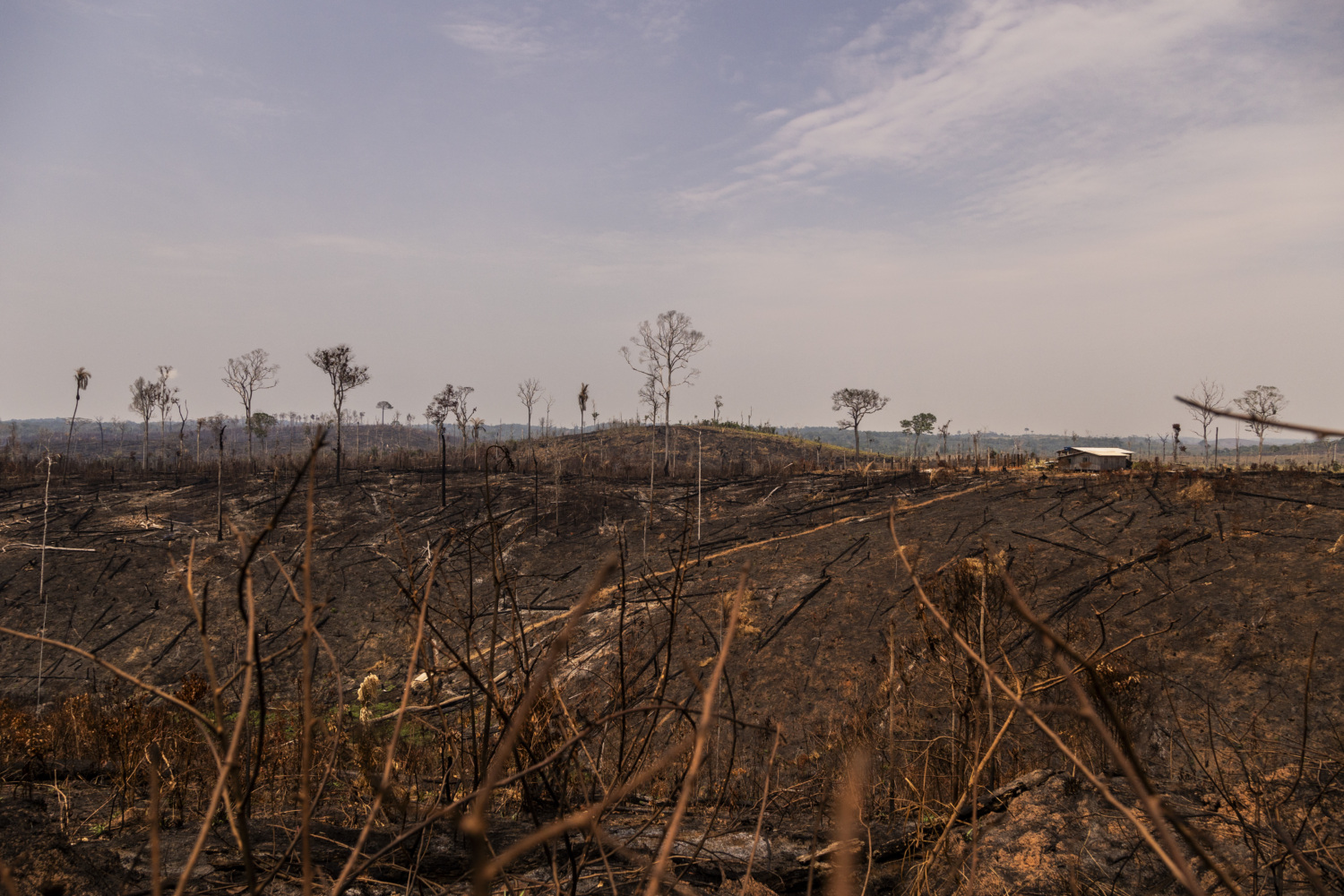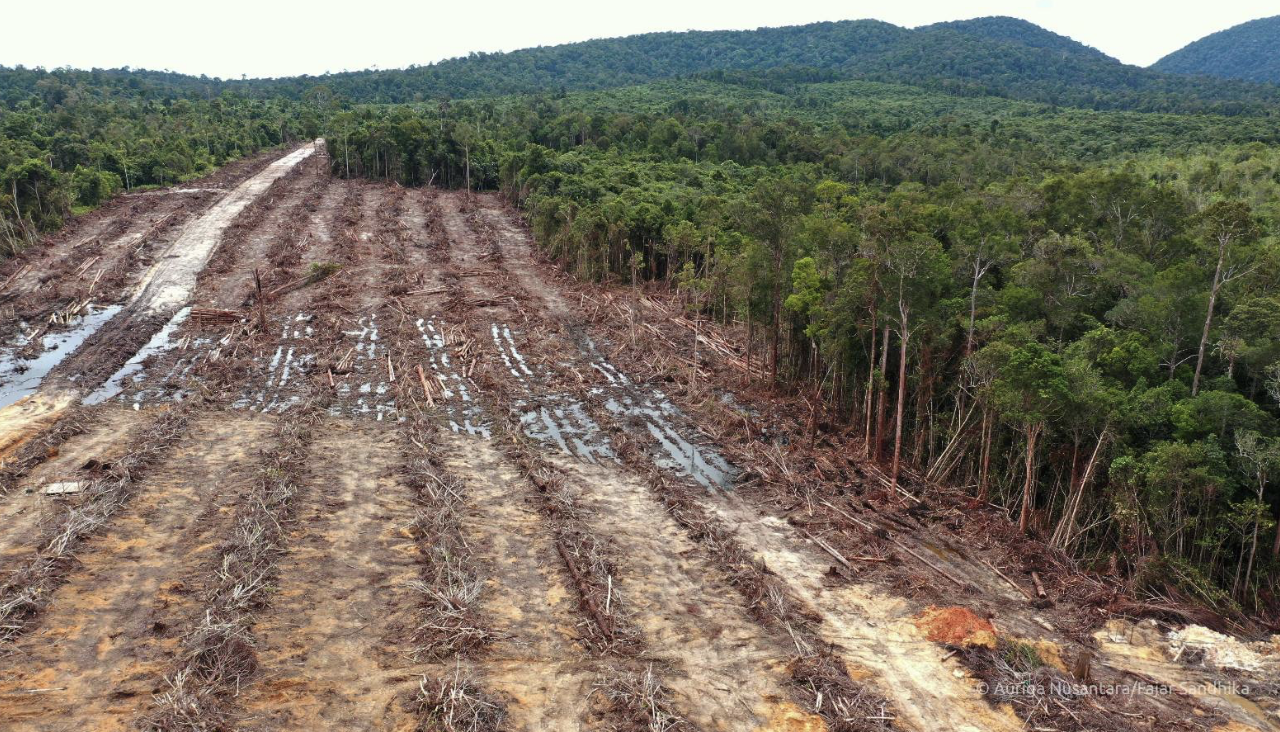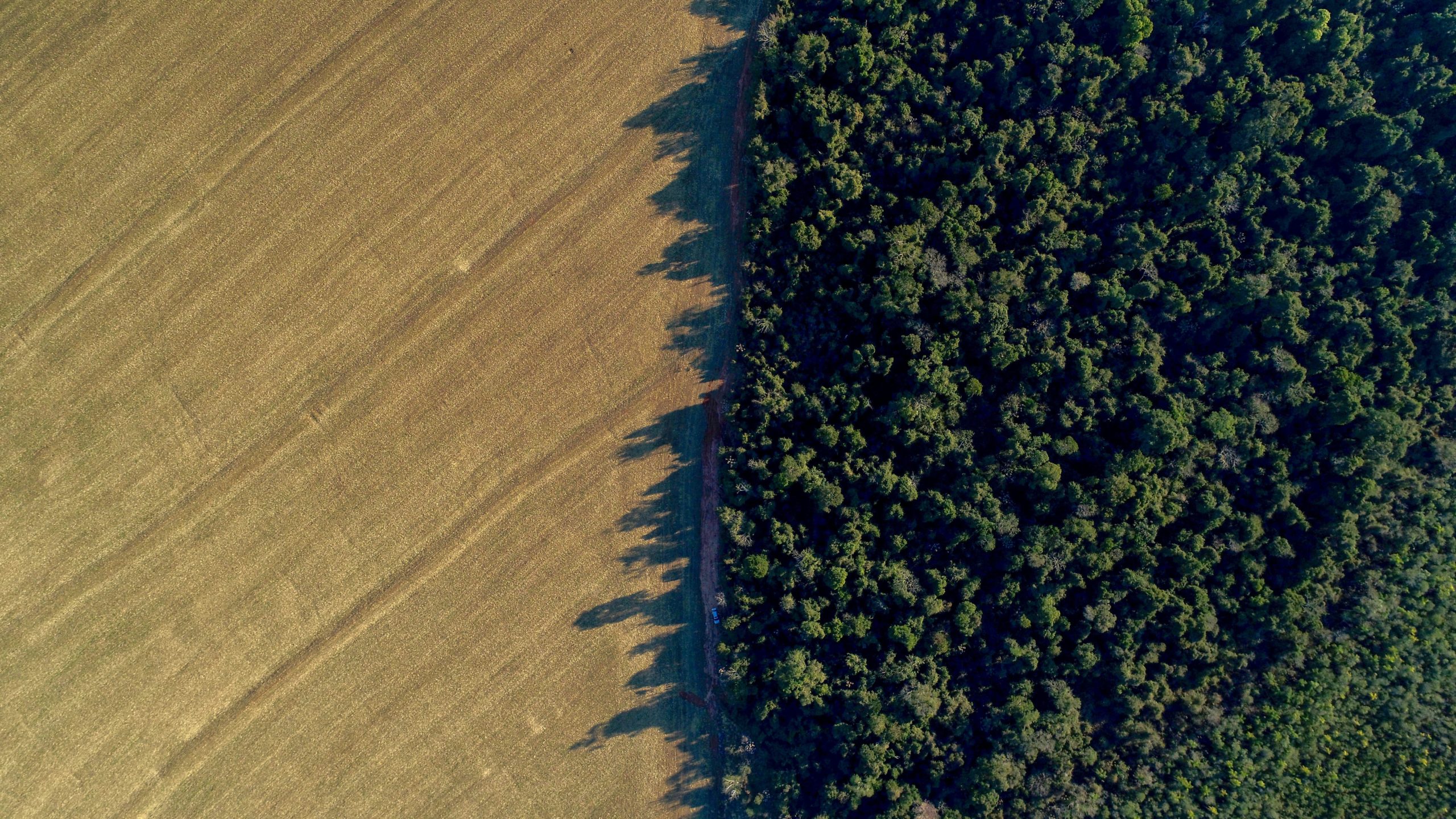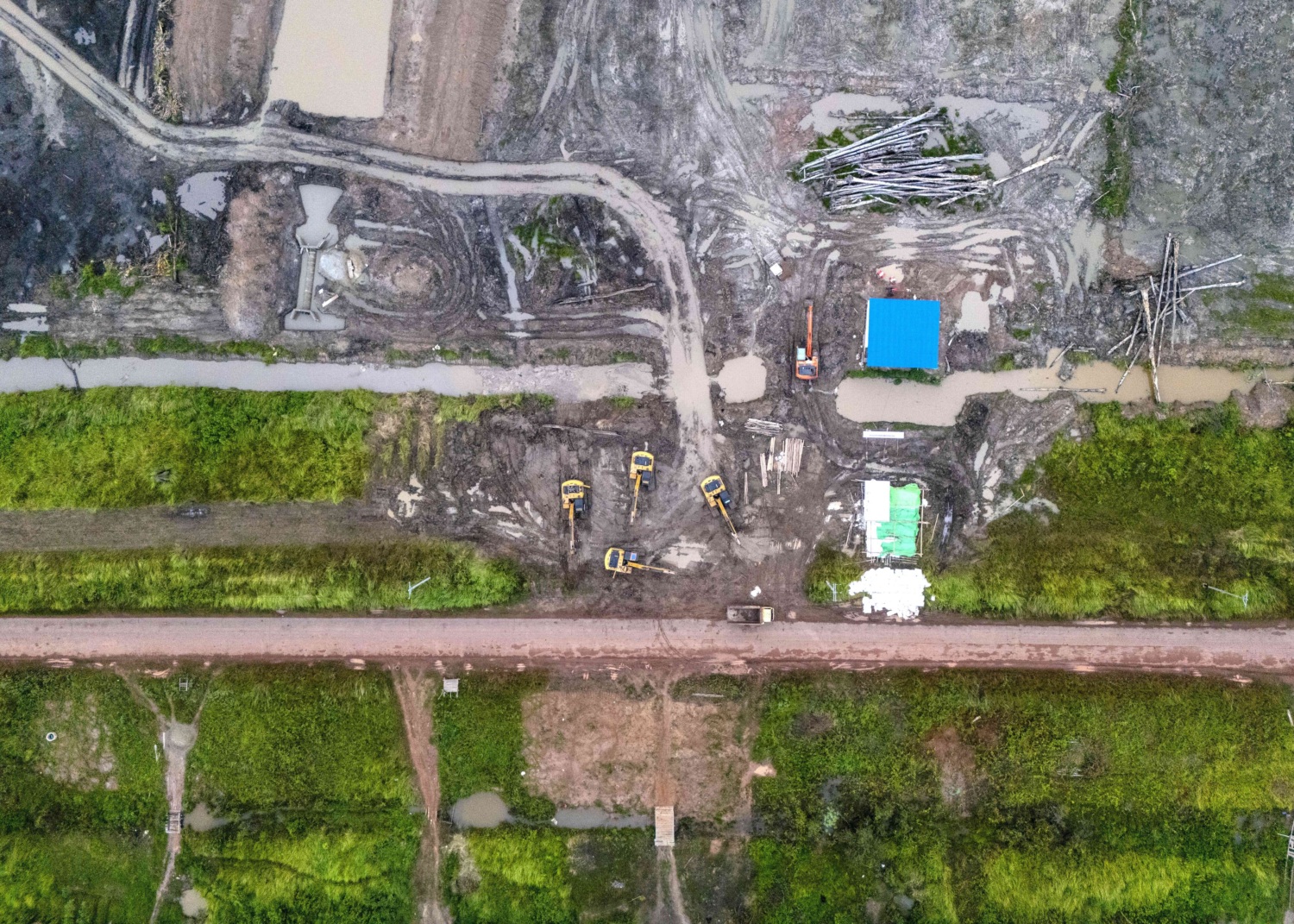
“Terrible Trio”: Bunge, Cargill & JBS ranked worst for deforestation
Link to Soy and Cattle Deforestation Monitor (including Tracker and Scorecard)
Link to Rapid Response #4 Soy report
Read PR for: Brazil, France, Netherlands, Spain
- Analysis of ten companies in a new Soy & Cattle Deforestation Tracker reveals clearing twice the size of London across the Amazon, Cerrado and the Pantanal.
- Launching alongside the ranking, a new report reveals the Cerrado is under siege with soy-driven deforestation in the vulnerable biome three times higher than the Amazon.
- Europe is complicit in the destruction of Brazil’s vulnerable biomes with soy imports up by more than 6% in 2024.
Bunge, Cargill and JBS are the “Terrible Trio” ranked worst for Brazilian deforestation in Mighty Earth’s Soy & Cattle Deforestation Tracker. The new tool ranks ten of the world’s biggest soy and meat companies on their links to cases of deforestation in threatened Brazilian biomes, such as the Amazon, the Cerrado and the Pantanal. US companies Bunge and Cargill are the soy traders linked to the most deforestation, with Brazilian beef giant JBS the worst of the meatpackers.
Soy & Cattle Deforestation Tracker
Backed by a database of 172 recent cases reported by AidEnvironment and Mighty Earth, the tracker links ten major soy traders and meatpackers to 330,296 hectares of recent deforestation and land degradation across the three biomes over the past two years (February 2022 to July 2024) – an area twice the size of London.
Bunge, ranked the worst company overall for deforestation, is potentially linked to 224,181 hectares of deforestation, with a quarter of this clearance happening in protected areas. Cargill is likely linked to over 133,256 hectares, with 85% of this deforestation taking place in the Cerrado savannah. JBS is a leading driver of deforestation among the meatpackers, with possible links to over 118,310 hectares of deforestation, with three-quarters of this taking place in the Amazon.
The new data shows that far from meeting many of the companies’ targets to be Deforestation and Conversion-Free (DCF) by 2025, the meat industry is continuing to wage a war on nature, with deforestation rising at an alarming rate. A third of this clearance occurred in protected areas, making it potentially illegal under Brazilian Law, and 66,129 hectares took place nearby or bordering Indigenous lands.
The data used for the Tracker represents a snapshot of the extensive destruction happening across Brazil, which in reality, is far greater.
Soy & Cattle Deforestation Scorecard
Accompanying the Tracker, Mighty Earth is also launching a new Scorecard which marks a year of our Rapid Response deforestation monitoring program. The new Scorecard evaluates how companies have responded to Mighty Earth’s Rapid Response deforestation alerts over the past year and highlights the inaction and lack of accountability by soy traders and meatpackers in tackling deforestation in their supply chains. Scored across four categories – Responsiveness, Transparency, Action and Zero Deforestation and Conversion Policy – worst placed JBS scored just 10/100, Cargill scored 11/100 and Bunge 31/100.
LDC leads the scorecard with 42 points out of 100 and has the highest scoring Deforestation & Conversion Free Policy, while ADM, in second place is the only company to publish these deforestation cases in a public grievance log.
Commenting on the launch of the Soy & Cattle Deforestation Tracker and Scorecard, Joao Gonçalves, Mighty Earth Senior Director for Brazil, said:
“Our new Soy & Cattle Deforestation Tracker reveals the ‘Terrible Trio’ of Bunge, Cargill and JBS as the worst culprits for driving deforestation in Brazil, lacking any transparency and failing to act on cleaning up their soy and cattle supply chains.”
“Our data shows that an area twice the size of London has been destroyed across the Amazon, Cerrado and Pantanal, as the meat industry continues to wage its war on nature, while recent clearing threatens Indigenous communities.”
“Accompanying the Deforestation Tracker, our new Scorecard evaluates how companies have responded to deforestation alerts filed with them over the past year, placing JBS and Cargill at the bottom of the table.”
“Given what Brazil has experienced this year – record forest fires, flooding, and drought – soy and cattle traders need to urgently stop buying from farms involved in deforestation, which is fueling global heating and worsening the climate and nature crisis.”
Joana Faggin, Team Lead for Deforestation-Free Supply Chains at AidEnvironment said:
“One of the goals of AidEnvironment’s Realtime Deforestation Monitoring (RDM) System is to analyze publicly available data to drive more transparency in commodity supply chains and to strengthen the implementation of traceability and zero-deforestation commitments, whether voluntary or legally-binding. This allows Mighty Earth to use the RDM analysis to engage directly with global soy traders and meatpackers.”
Cerrado under siege
Launching alongside the Tracker and Scorecard, Mighty Earth’s new Rapid Response #4 Soy monitoring report reveals that deforestation rates linked to soy are almost three times higher in the Cerrado than its neighbour, the Amazon. Our analysis found 25,207 hectares of soy-linked deforestation alerts were recorded in the Cerrado, from January to April 2024, in comparison to 8,782 hectares of soy-driven deforestation and degradation alerts in the Amazon over the same period.
Home to five per cent of the world’s biodiversity, the Cerrado is one of the most endangered biomes on Earth. Largely unprotected by national or international legislation, it is more vulnerable to ecosystem collapse than the Amazon. More than half of the Cerrado has been lost, taken by the meat industry to graze cattle and grow soy as animal feed for intensive livestock farming in Europe, China and beyond.
Seven farms were identified where deforestation and degradation alerts occurred between January and April of this year, five of which were in the Cerrado. These totaled 11,768 hectares on farms previously planted with soy and located within a 50-kilometer radius of grain silos owned by seven global grain traders – ADM, ALZ Grãos, Amaggi, Bunge, Cargill, Cofco and LDC. Our analysis found 7,383 hectares of recent deforestation on one single farm in an extremely high priority conservation area in the Cerrado, with a likely link to soy traders Bunge and ALZ Grãos.
Europe’s complicity
Europe is a key market for Brazilian soy, with exports of soybeans and soymeal/oil cake up by 6.3% from January to September 2024, compared with the same period in 2023. Soybean exports to France, Germany, the Netherlands, Spain, and the UK increased by 20% for the first nine months of this year, compared to the same period last year. Around half of the Brazilian soy exported to the UK and Germany comes from the Cerrado. And Brazilian soybean and soymeal exports to Spain increased by a staggering 39% this year on 2023 figures.
Commenting on the latest Rapid Response report Mariana Gameiro, Senior Advisor (Brazil) at Mighty Earth, said:
“The Cerrado is under siege with soy-driven deforestation almost three times higher in this threatened landscape than in its neighbour the Amazon. However, recent attacks to the Amazon Soy Moratorium and the EU Deforestation Regulation and the delayed UK Environment Act increase the risk of further deforestation and degradation in the Amazon.”
“Brazilian soy continues to flow into Europe with exports up by more than 6%, making Europe complicit in the destruction of these critical biomes. European retailers and the meat, dairy and animal feed industries must take immediate action to sever commercial ties with major soy suppliers linked to deforestation.”
The Tracker, Scorecard and Rapid Response #4 Soy report are released as forest protection comes under further attack with political and economic threats to the Amazon Soy Moratorium in Brazil and the recently approved 12-month delay to the European Union Deforestation Regulation.


